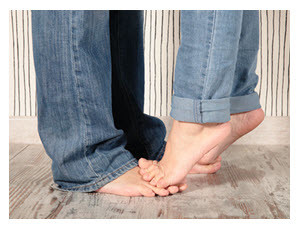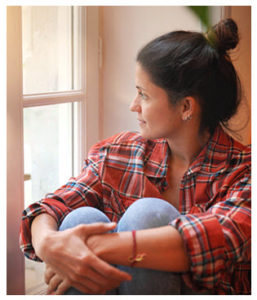Childhood. I wish I remembered more. Sometimes I wonder why it is that I forget, why it is that I more easily remember objects and furnishings and clothing. I envy the current generation with so many digital images and clips to spark recollections of people and places and events.

Beginnings are fascinating, don’t you think? The beginnings of novels and films, opening with such proficiency and prowess that we are charmed, seduced, tantalized; we ride the plot’s rollercoaster and inhabit the characters’ foibles and failings all the way to what we hope will be a satisfying end. We want our “good guys” to win and the villains to reap the consequences of their bad acts, though nothing is ever so simple as that.
We may only appreciate the writer’s craft as we are coaxed or cradled through to the middle of the tale, and shuttled eventually to its dénouement. Sometimes we circle back to the beginning for a fuller picture, to better understand, to savor. Sometimes to encounter an old friend.
The beginnings of our own stories, those first two or three precious years of life that we may never recall, are fatalistically important. So we are told. But shouldn’t we extend that period to age six or seven? And what about the formative years that follow? What about adolescence? Don’t these stages bear wins and losses that mark us in indelible ways? Isn’t the stage set after age three — for the way we love, the way we trust, the way we communicate, the way we live our emotions, the way we come into our own?
Sometimes our beginnings are a patchwork of trial and error, an impressionistic painting, or more accurately, an abstract expressionist one — a splash here, a splatter there, impasto in one corner and a surprising swath of empty canvas in another. Perhaps that is what memory becomes as the years go on: thick and sculptural in some areas, delicate but distinct in others, alive with unapologetic color, and then nothing at all in spaces where we may imagine that secrets are hiding. Or perhaps nothing is simply that — nothing. No noticeable incident. No blip in routine. Days of early rising to an alarm clock, dressing for school, grabbing a bag lunch, walking to a bus stop, sitting through classes, teachers who are kind enough, composition books that are filled enough, grades that are good enough, another year, another summertime, another autumn with its pencils to sharpen and notebooks on which to write your name.
There is dream, of course, snippets of the past that blend with fiction and fantasy and wishful thinking, crafting odd and oblique signals sent from the subconscious to the conscious, waking mind. I tell myself these are lessons I need to turn over and over, ultimately, to decipher.
And sometimes I do just that. Find keys, interpret messages, feel stronger.
 Naturally, there are relationships that we analyze, the beginnings that we replay in our minds, the beginnings that we so often romanticize, the beginnings in which we cling to our blinders, the beginnings that only hint at the quality that will reveal itself to us. These too are like a painting – wild and fiery and jubilant, or patiently stippled with carefully placed points of laughter and meaning, no need to hurry, to assume, to fast forward.
Naturally, there are relationships that we analyze, the beginnings that we replay in our minds, the beginnings that we so often romanticize, the beginnings in which we cling to our blinders, the beginnings that only hint at the quality that will reveal itself to us. These too are like a painting – wild and fiery and jubilant, or patiently stippled with carefully placed points of laughter and meaning, no need to hurry, to assume, to fast forward.
We step back to appreciate the beauty of the whole — abstract or pointillist — its folly and its genius.
Don’t we find warnings in the beginnings of relationships — if we pay attention? A flash of anger that seems overwrought, indifference that goes unexplained, selfishness that suggests something more sinister, more pervasive, a narcissism that is now so prevalent in our society. Perhaps the selfishness we see is more ordinary, a cluelessness that arises from his beginnings or her beginnings, an excess of ego that we can tolerate in the trade-off of other admirable qualities as we hope that our own less than laudable lapses will be forgiven.
I know my propensity for ignoring warning signs; I saw them, plainly, in every significant beginning that I allowed to flower, turning away from what I didn’t want to know.
Now, as I have for years, I think about my sons and their beginnings when there was so much love, a household as yet unshaken by divorce and its decade of rumblings; I think of their playfulness, their innocence, their unruptured sense of security; I marvel at my own imagining that somehow, we would go on like that forever.
I hope those early years were sufficient to ground them and give them faith in who they can be and their own chance at love, but I will never know if those beginnings were enough.
I wonder about my own beginnings at times, pushing myself to recall something, anything, of specific events beyond a handful that are all too vividly recorded in my memory. I wonder about my inability to recall much except the cocoa and pink wallpaper with its flecks of turquoise; the hideous red patterned fabric on the living room loveseat; the 19th-century potty chair by the front window, where my mother insisted on posing me when she took a photograph with her Instamatic and its yellow Kodak cartridges; the eagles everywhere — on the base of a lamp with a gold shade in the front foyer and another in the den, a place she would also pose me for pictures; eagles embroidered in antique needlework framed and hanging above a corduroy sofa and another by the stairs; pins in sterling and gold-toned metal — so many pins, so many eagles, so many images of her possessions and my surroundings, and otherwise, for the most part, blurs and blanks.
Perhaps, then, I am allowed to fill in those blanks as I please. Or move beyond any need to fill them in, ever.
Even as I put these words to virtual paper, returning to my own beginnings, the beginnings of capturing waking thoughts quickly, the beginnings of an exercise one decade ago, the evolution of a life preserver of sorts that I tossed to myself, this luxury of closing my eyes and allowing my fingers to become the conduit for whatever wants out, this passage from the silly to the serious and back again, this means to exert some small measure of control over the course of crazy days and months and even years when I felt I had none; this morning munition, these words arming me to chase away my demons, to discover and recover, to acknowledge strength and fragility and the jumble of selves that live inside of us, selves that jostle and compete some days in turmoil and others in splendid acceptance; the beginnings of an experiment, what I recall of it, what I have unintentionally forgotten, the foolish things I said, the foolish things I still say, the wisdom that may have seeped out that surprises me; this messy business of standing back from beginnings that provides perspective, that buoys us beyond pride and panic, that reaches from me to you and touches something we have in common, that knows the value in painting on the page, sifting through the hues and texture without neglecting the corners and hollows where only the white weave of canvas stares back — I know this: a thicket of color and line demand a place for the eye to rest.
And then we can pick up, find pleasure, reset purpose, see through new eyes.
 Perhaps, as much as I am happy to adventure and to gaze and to speak, this is why I am wed to the empty window, to what is left unseen, to the sweetness of what is unspoken.
Perhaps, as much as I am happy to adventure and to gaze and to speak, this is why I am wed to the empty window, to what is left unseen, to the sweetness of what is unspoken.
In those spaces, I can hide. In those spaces, I can regroup. In those spaces, I can dream.
Childhood. I wish I remembered more. Of course, what we recall does not change our past as much as it informs our present and guides our future. But we should not make too much of beginnings. They are simply a point of departure on a good day or a bad day, or any hour in between.
You May Also Enjoy
D.A. – Thank you from the bottom of my heart for DPoC. Your writing is breathtaking, beautiful, moving, and we have been fortunate to have been an audience. In lieu of an inadequate compliment, I’ll just quote you – “…this messy business of standing back from beginnings that provides perspective, … that reaches from me to you and touches something we have in common, that knows the value in painting on the page, sifting through the hues and texture…” Your work is truly special.
Thank you for your kindness, Robert. And for so many years of taking part in the conversation around here, with such care and thoughtfulness.
I, too, have always enjoyed your writing. Our back-and-forth, and reading your thoughts each morning, gave me a place to belong when at times little else did. You write with spirit. Sometimes that is all we have, that indefatigable spark. I wish you were my neighbour, we’d never get the chores done for talking, but I know you’d never understand my accent when I’m talking too fast and interrupting, like all Australians do. Thank you for embracing us all with your daily discipline, and teaching us. x
What a lovely comment, Di. You would definitely have to slow the pace so I could understand your accent, yes! (Could you understand my American accent?) But I wish we were neighbors too. (We would talk and talk and talk, you’re right.) I remember very well what sparked our conversation many many years back. Thank you for your kind words. Wishing you and your family well.